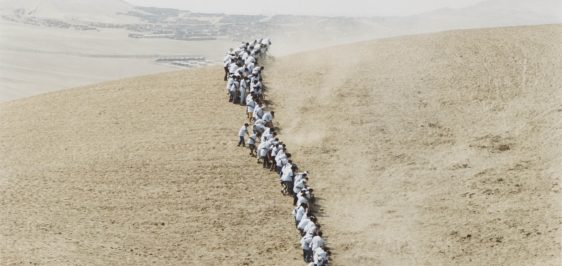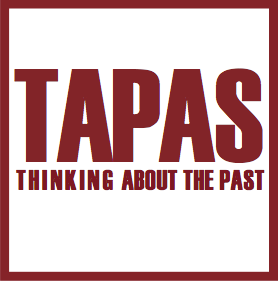
TAPAS Reading Group Series 2022
This reading group series is the second TAPAS series that explores how people have thought theoretically about the relationship between (doing) history and responsibility. A few decades after the so-called ‘memory boom’, the wide-spread assumptions that engaging with the past can potentially enforce justice have found lots of skepticism among historians and other scholars. In memory studies, the ideal of “moral remembrance” — “a standardized set of norms, promoted through the human rights infrastructures of world polity, in which societies are supposed to deal with the legacies of mass human rights abuses” — has been severely attacked (David 2020). Scholars have, for example, pointed out how remembering dark pasts does not automatically lead to an enlightened “good citizenship” or increased respect for other cultures, and how it at times even produces an entirely opposite attitude (Gensburger and Lefranc 2020). Historians have therefore come to realize that engagement with the past does not inherently serve justice (Minow 199; Torpey 2001). Older critiques of historians’ blind belief in progress and their teleological concept of historical time have also unsettled the idea that historians and/or history itself can be the agents of “history’s judgment”.
At the same time, many theorists of history have refused to give up entirely on the idea that history connects to ethical responsibility (Tomba 2019; Scott 2020). If our relationship to history is to be solely cognitive and if there is not even a weak moral motive hidden in our engagements with the past, why bother studying history? Deep down, policymakers and professional historians, too, continue to believe that engaging with history leads people to feel ethically responsible for both past and present wrongs: that either practicing history can cause responsible behavior, or that engaging with the past urges us to feel responsibilities towards history. This reading group series will explore such gut-feelings theoretically and asks what kind of history we would need for ‘responsibilizing history’. Here we discuss what kind of engagement with the past can lead to a democratic political culture or can address enduring injustices. Do we need a specific empathetic history for that, a history that heals, provides hope? We also ask what kind of historical narration would be responsible in conflict situations. In our discussions of all these ‘functions’ for history, we consistently take into account the critiques on assumptions about how history serves justice. Our end goal, however, is to try to raise hope for history and memory to sustain democratic politics.
PRACTICAL INFO AND CONTACT
Researchers and students interested in joining our reading group series can sign up by sending an e-mail to tapas@ugent.be. As usual, TAPAS reading groups are informal and we welcome all interested colleagues and students to join the discussion. We will share all literature beforehand and will organize all sessions online in ZOOM.
For information about the previous reading group series on history and responsibility (“Responsibilizing History: Does History Call for Justice?”, Spring-Fall 2021), click here.
PROGRAM
Friday 28th of January, 2022 | 12h30 – 14h00
On the public role of history
-
Moses, A. Dirk. (2005). “Hayden White, Traumatic Nationalism, and the Public Role of History.” History and Theory 44, (3): 311–32.
-
White, Hayden. (2005). “The Public Relevance of Historical Studies: A Reply to Dirk Moses.” History and Theory 44, (3): 333–38.
- Optional: rejoinder by Dirk Moses. Moses, A. Dirk. (2005). “The Public Relevance of Historical Studies: A Rejoinder to Hayden White.” History and Theory 44, (3): 339–47.
Friday 11th of February, 2022 | 12h30 – 14h00
(How) can history relate to empathy?
- Thomas A. Kohut (2020). “Chapter 3: Narrower Definitions of Empathy and their Relation to Historical Inquiry”. In: Empathy and the Historical Understanding of the Human Past. London: Routledge.
- Alison Landsberg’s Prosthetic Memory + discussion in Rethinking History:
- Berger, James (2007). “Which Prosthetic? Mass Media, Narrative, Empathy, and Progressive Politics.” Rethinking History 11, (4): 597–612.
- (optional) Landsberg, Alison (2018). “Prosthetic Memory: The Ethics and Politics of Memory in an Age of Mass Culture.” In: Memory and Popular Film. Manchester: Manchester University Press, 145-161.
Friday 25th of February, 2022 | 12h30 – 14h00
(How) can history relate to recognition?
- Dipesh Chakrabarty (2007). “History and the Politics of Recognition”. In: Manifestos for History, ed. by Keith Jenkins, Alan Munslow, and Susan Gordon. London: Routledge.
- Jörn Rüsen (2004). “How to Overcome Ethnocentrism: Approaches to a Culture of Recognition by History in the Twenty-First Century”. In: History and Theory, Theme Issue: Historians and Ethics, 43 (4): pp. 118-129.
Friday 11th of March, 2022 | 12h30 – 14h00
(How) can history relate to reconciliation?
- Nadim Khoury (2017). “Plotting Stories after War: Toward a Methodology for Negotiating Identity”. European Journal of International Relations, 24 (2): 367-390.
- Berber Bevernage and Kate Temoney (2022). “Historical understanding and reconciliation after violent conflict”. In: Historical understanding: past, present and future, ed. by Zoltán Boldizsár Simon and Lars Deile. Bloomsbury Academic.
Friday 25th of March, 2022 | 12h30 – 14h00
(How) can history foster a democratic political culture?
- Lea David (2020). “Introduction”. In: The Past Can’t Heal Us: The Dangers of Mandating Memory in the Name of Human Rights. Cambridge: Cambridge University Press, 1-20.
- Sara Ahmed (2005). “The Politics of Bad Feeling.” Australian Critical Race and Whiteness Studies Association Journal, 1 (1): 72–85.
Friday 22nd of April, 2022 | 12h30 – 14h00
(How) can history relate to healing?
- Ronald Niezen (2009). “Therapeutic History.” In: Rediscovered Self: Indigenous Identity and Cultural Justice. Montréal: McGill-Queen’s Press, 149-75.
- Wulf Kansteiner (2004). “Genealogy of a Category Mistake: A Critical Intellectual History of the Cultural Trauma Metaphor.” Rethinking History 8, (2): 193–221.
Friday 3rd of June, 2022 | 12h30 – 14h00
Should history (always) be critical?
- Joan W. Scott (2007). “History-writing as critique”. In: Manifestos for Historians, ed. by Keith Jenkins, Alan Munslow, and Susan Gordon. London: Routledge, 19–38.
- Bruno Latour (2004). “Why Has Critique Run out of Steam? From Matters of Fact to Matters of Concern.” In: Critical Inquiry, 30 (2): 225-248.
Friday 17th of June, 2022 | 12h30 – 14h00
(How) can history foster hope?
- Antonis Liakos (2007). Utopian and Historical Thinking: Interplays and Transferences. In: Historein (7): 20-57. Find PDF here
- Joan W. Scott (2020). “CH3: Calling History to Account: The Movement for Reparations for Slavery in the United States” AND “Epilogue: Revisioning History.” In: Joan W. Scott. On the Judgement of History. Columbia University Press; New York; pp. 51-88. Find PDF here
ORGANIZING COMMITTEE
Prof. Dr. Berber Bevernage: Professor at the Department of History, Ghent University, Belgium
Dr. Walderez Ramalho: Adjunct Professor at the Department of History of the State University of Santa Catarina, Brazil
Dra. Marie-Gabrielle Verbergt: PhD Student at the Department of History, Ghent University, Belgium
Dra. Eline Mestdagh: PhD Student at the Department of History, Ghent University, Belgium
